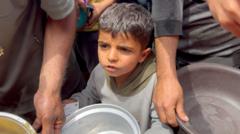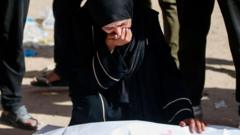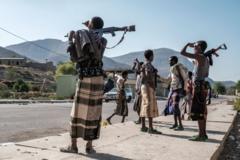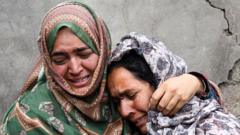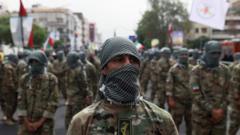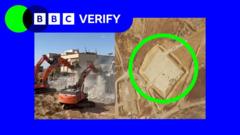Amid a surge in Israeli airstrikes and rising death tolls in Gaza, US diplomatic officials voice deep concern about the humanitarian crisis affecting civilians.
US Diplomat Expresses Concern Over Intensifying Humanitarian Crisis in Gaza
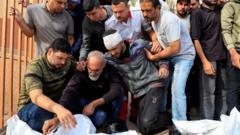
US Diplomat Expresses Concern Over Intensifying Humanitarian Crisis in Gaza
Marco Rubio's remarks highlight the growing US unease as hostilities escalate in the region.
US diplomat Marco Rubio has expressed serious concern over the deteriorating humanitarian situation in Gaza, noting the distressing impact of recent Israeli airstrikes that have resulted in considerable civilian casualties. Health officials reported that on Thursday alone, 114 Palestinians lost their lives due to intensified military operations, prompting Rubio to emphasize the necessity of distinguishing between military objectives and humanitarian obligations.
In an interview with BBC, Rubio affirmed the United States' support for Israel, but underscored the need for awareness regarding the plight of Gazan civilians. He called for Hamas to surrender and release hostages, stating that peace cannot be achieved while the group exists. “We recognize the suffering of the people of Gaza," Rubio commented, noting potential opportunities to provide aid.
The backdrop to these remarks is Gaza's ongoing blockade, which has left the region devoid of essential supplies for over ten weeks, alongside an intensification of Israeli bombardment targeting Hamas operational sites. Rubio's comments were made following a gathering of NATO foreign ministers in Turkey, amidst indirect negotiations for a potential ceasefire and hostage resolution involving Hamas.
Hamas has accused Israel of jeopardizing mediation efforts through escalating military actions. In contrast, an Israeli official maintained that negotiations regarding the release of hostages would not cease while military pressure on Hamas persists. Rubio's shift in tone comes amid growing tensions between former President Trump and Israeli Prime Minister Netanyahu.
In southern Gaza, the situation remains dire as families mourn the losses from the latest bombardments. Eyewitnesses described scenes of devastation, with hospitals overwhelmed by the influx of casualties, many of whom were children and women. “The level of destruction has tragically become part of daily life,” lamented one local source following airstrikes in Khan Younis, which reportedly killed over 50 people.
The aftermath of the strikes has been catastrophic, with local families recounting heart-wrenching stories of loss and survival. Amid overwhelming grief, reports indicate that multiple civilian facilities, including health clinics, have also been targeted. A Gaza resident lamented the attacks on safe spaces, labeling them an "indescribable crime."
As conditions precariously deteriorate, a US-backed aid organization plans to establish operations in Gaza within weeks under a controversial US-Israel relief framework. The UN, however, has rejected involvement in such plans, stating they contradict humanitarian principles. Israel’s continued blockade exacerbates the plight of Gazans, with reports suggesting that half a million people are at risk of starvation. The international community, alongside the UN, asserts that Israel has a legal obligation to provide humanitarian aid to the population of Gaza, which remains a contentious issue amid ongoing hostilities.
The sequence of events is part of a broader Israeli military response initiated following a Hamas attack on October 7, which claimed the lives of around 1,200 individuals. The humanitarian crisis, with alarmingly high casualty figures reported by Gaza’s health ministry, underscores an urgent call for solutions aimed at easing the suffering of civilians caught in the crossfire.


